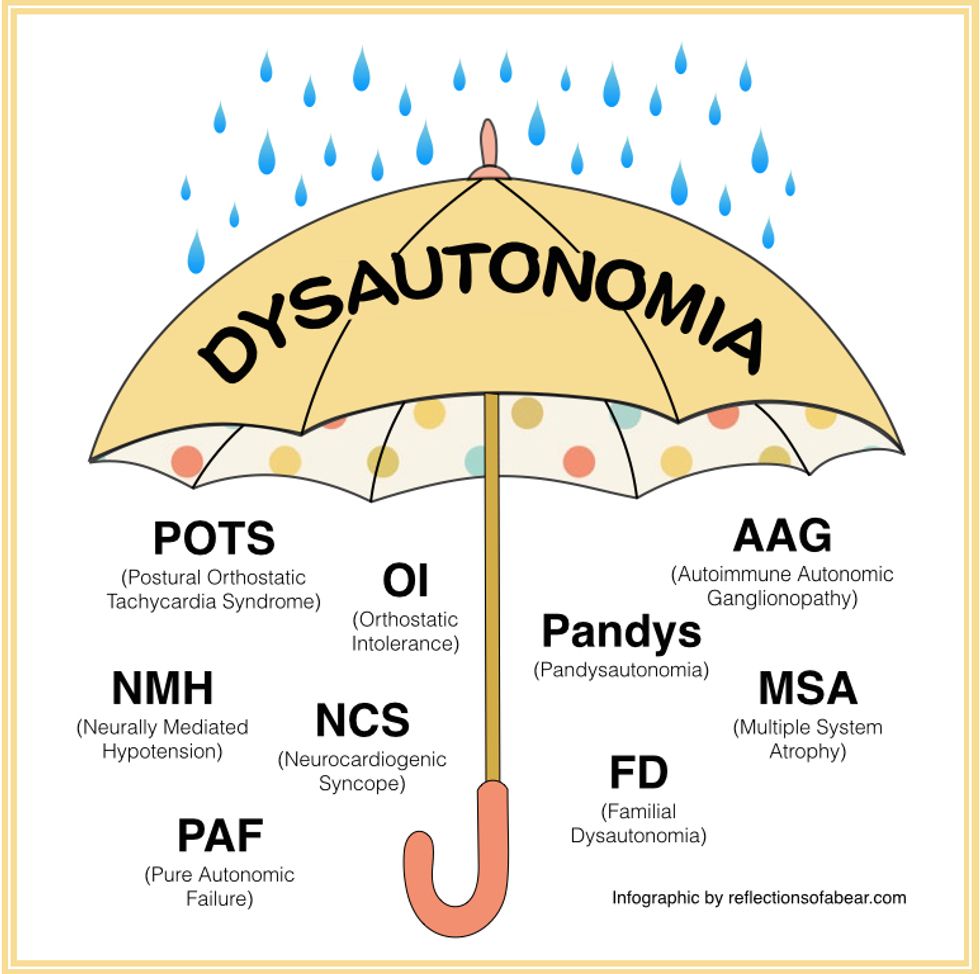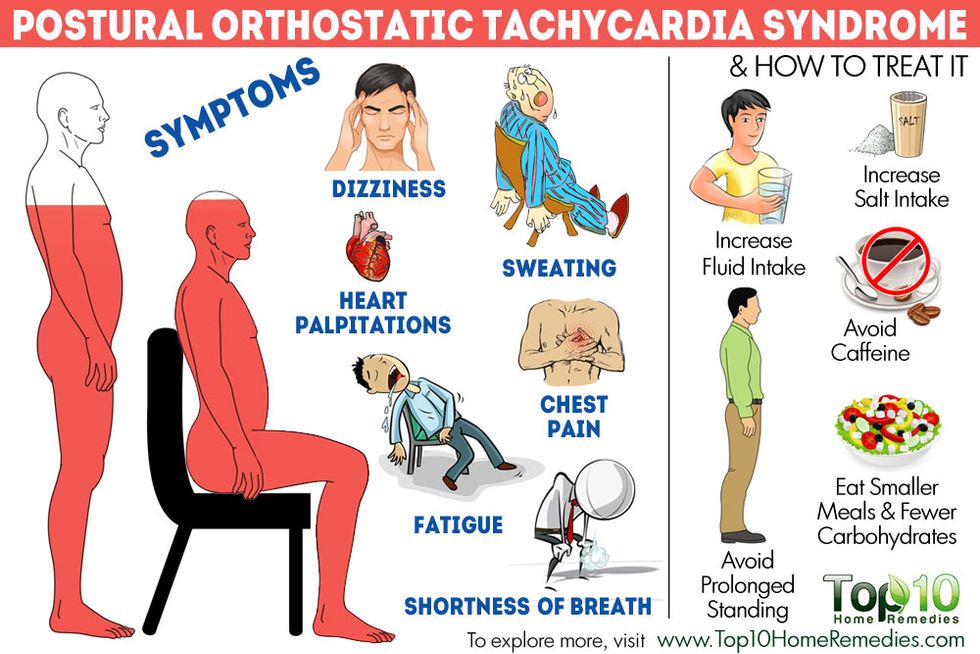Have you ever heard of Dysautonomia? What about POTS?
Chances are, you probably have not.
October is Dysautonomia Awareness Month.
Dysautonomia is a broad term that describes medical conditions which cause a malfunction of the Autonomic Nervous System. Basically, this means the things you have no control over - such as: heart, bladder, intestines, sweat, blood vessels, etc. - are being affected.
The form of dysautonomia I have is POTS, Postural Orthostatic Tachycardia Syndrome. I was diagnosed with POTS in 2015, but I started having symptoms years before that. When a person with POTS goes from sitting to standing, heart rate will increase by at least 30 beats per minute due to improper blood flow with the position change. This is done with a test called a Tilt-Table Test, which is meant to recreate a person's symptoms, and ultimately lead to a diagnosis.
Common symptoms that a person with POTS experiences on a regular basis are:
-Rapid heartbeat
-Shortness of breath
-Visual disturbances, such as blurry vision
-Dizziness
-Chest pain/tightness
-Migraine
-Fatigue
-Fainting
-Adrenaline rushes
-Anxiety
-Tremors
-Heat intolerance
-Brain fog
-GI issues
The degree of severity of the symptoms depends on the person. Symptoms worsen when a person is under any form of stress, has a virus, is dehydrated, and more.
***
Dysautonomia may not be well-known to the public, but it is definitely NOT rare.
In fact, I personally know many people that live with some form of dysautonomia. Between 1 and 3 million Americans live with POTS. 1 in every 100 teenagers have POTS - So, for every college lecture, that's at least 1 person living with POTS.
Dysautonomia is an invisible illness. Many people with dysautonomia look completely healthy on the outside; they often get misdiagnosed with other conditions, such as anxiety disorders. As you can see from the symptoms listed, many symptoms do overlap with anxiety, such as rapid heartbeat and shortness of breath. However, dysautonomia symptoms are much more frequent and severe, which is a major reason why it is so difficult to reach a diagnosis. On average, it usually takes someone 2 to 3 years to reach a diagnosis. I have noticed that many doctors are definitely becoming more familiar with dysautonomia over just the last 2 years, but not enough.
There is not a specific cause of POTS. Studies have shown that it can follow a virus, can coexist with other conditions, such as Ehlers Danlos Syndrome and autoimmune diseases, and it can even come out of nowhere. Some people grow out of dysautonomia, but many do not.
There are some medications, such as beta blockers, Florinef, Midodrine, etc. as well as lifestyle changes, such as increasing fluid and salt intake that can help relieve some of the symptoms of POTS. However, there is unfortunately no cure.
We need to raise awareness for dysautonomia. It takes people so long to get diagnosed, which not only affects their physical symptoms, but also plays a toll on their mental health since nobody can figure out what is wrong with them! Imagine being sick for years, and going from doctor to doctor without anybody being able to figure out what the heck is wrong with you. It is not fair at all. I hope that over the next few years, health professionals will become better educated with dysautonomia to help diagnose people earlier, and to ultimately find a cure for these conditions.
#Dysautonomia #StandingUpToPOTS























